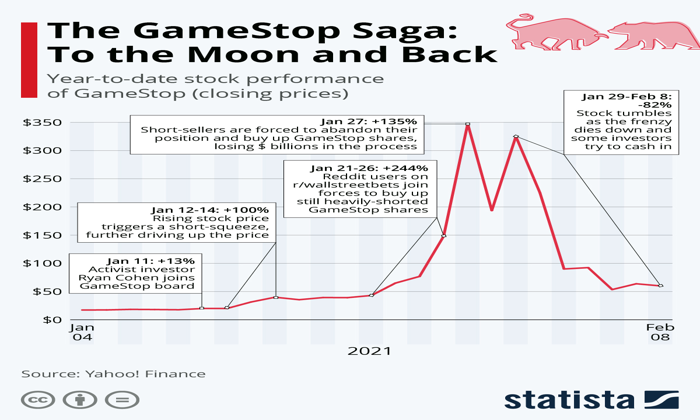The recent Illinois lawsuit against Coinbase has taken an unexpected turn as state officials announce a pause in the proceedings concerning the firm’s staking services. A spokesperson for Secretary of State Alexi Giannoulias revealed that Illinois intends to dismiss the litigation, following a trend of other states like Vermont and South Carolina that also withdrew their lawsuits. This decision comes amidst the backdrop of an evolving landscape in crypto regulation, marked by significant legal challenges faced by Coinbase, especially in light of the SEC lawsuit dismissal announcement. In addition, Illinois is advancing its ambitious Illinois Bitcoin reserve bill, aiming to create a strategic fund for Bitcoin, showcasing the state’s commitment to cryptocurrency as a serious financial asset. As more states pivot away from litigation, the implications for Coinbase’s operations and the broader crypto market could be profound, signaling a potential shift towards a more favorable regulatory environment.
In recent developments, the state of Illinois has decided to halt its legal action against the well-known cryptocurrency exchange, Coinbase, specifically related to its staking services. This move signals a broader trend of states reevaluating their stance on cryptocurrency regulation, as demonstrated by similar withdrawals from litigation in states such as South Carolina and Vermont. At the same time, Illinois is actively considering a new measure under the Illinois Bitcoin reserve bill, which aims to establish a dedicated fund for Bitcoin holdings. The withdrawal of lawsuits coincides with the SEC’s recent agreement to dismiss its own case against Coinbase, indicating a significant shift in the regulatory framework governing the crypto industry. As these legal battles unfold, the evolving narrative presents both challenges and opportunities for Coinbase, which is navigating a complex landscape of legal and regulatory hurdles.
Overview of Illinois Lawsuit Against Coinbase
The Illinois lawsuit against Coinbase revolves around allegations surrounding the exchange’s staking services, which were part of a larger wave of legal actions initiated by multiple states amidst increasing scrutiny on cryptocurrency regulations. As a result of these legal challenges, Illinois, along with several other states, has decided to pause proceedings against Coinbase, opting instead for a more collaborative approach as the regulatory environment evolves. This shift indicates a growing recognition among state officials of the need to reassess the legal basis for these claims, particularly in light of the broader movements toward regulatory clarity at the federal level.
With Illinois becoming the fourth state to withdraw its lawsuit, this change comes at a time when states are reconsidering their stance on crypto-related legal frameworks. The decision aligns with recent comments from industry leaders advocating for a unified federal regulatory scheme rather than a fragmented state-by-state procedure. By stepping back from litigation, Illinois might be allowing more room for constructive dialogue regarding crypto regulation, which is crucial for fostering innovation and protecting investors in the rapidly evolving digital asset landscape.
Impact of SEC Lawsuit Dismissal
The recent agreement between Coinbase and the SEC to dismiss the federal lawsuit carries significant implications for the crypto industry, particularly as it pertains to the regulatory scrutiny of staking services. Following this example, state-level lawsuits have begun to dwindle, with Illinois’ announcement serving as a pivotal moment in the ongoing dialogue about how cryptocurrencies, particularly staking operations, are categorized under existing securities laws. This dismissal not only legitimizes Coinbase’s operations but also sets a precedent for other exchanges facing similar challenges regarding staking services.
The SEC’s decision marks a pivotal moment in the evolving landscape of crypto regulation, highlighting a possible shift towards a more accommodating framework for digital asset exchanges. As Illinois and other states reconsider their legal strategies, it suggests a potential future where crypto firms can operate with less fear of legal repercussions while still complying with new regulations. Such transformations are imperative for the growth of the cryptocurrency market, fostering a more transparent and secure environment for both businesses and consumers.
Illinois Bitcoin Reserve Bill: A New Direction in Crypto Regulation
Illinois is taking a significant step by introducing a Bitcoin reserve bill, which would establish a dedicated fund for holding Bitcoin as a financial asset for a minimum of five years. This initiative not only paves the way for Illinois to embrace cryptocurrency as part of its financial strategy but also positions the state at the forefront of innovative regulatory approaches to digital assets. House Bill 1844 signifies a departure from traditional state engagement with cryptocurrencies, showing a willingness to explore the establishment of reserves that could strengthen state finances while also legitimizing Bitcoin as an asset class.
The proposed Bitcoin Strategic Reserve Fund is part of a broader trend among multiple states recognizing the importance and potential of cryptocurrencies. By adopting forward-thinking legislation, Illinois acknowledges the growing acceptance of digital currencies and their role in future economic strategies. This new legislation aligns with the sentiments expressed by industry advocates for more comprehensive regulations that can accommodate the unique qualities of cryptocurrencies, contrasting sharply with previous litigation-oriented approaches to regulation.
Navigating Coinbase’s Legal Challenges
As the ongoing legal challenges from various states loom over Coinbase, the shift in Illinois’ legal stance represents a turning point for the exchange. Coinbase has consistently faced scrutiny over its staking services, which were initially contested by the SEC and subsequently mirrored by multiple states. The recent developments suggest that these legal challenges may be softening, indicating an adaptive regulatory environment that is starting to align with the needs of the crypto industry. With increasing calls for clarity on crypto regulations, the withdrawal of Illinois’ lawsuit may reflect a broader acceptance of cryptocurrency.
For Coinbase, navigating these legal waters is crucial for its future operations and sustainability. As the SEC lawsuit dismissal suggests a trend towards less aggressive enforcement, Coinbase and other exchanges can begin to advocate for clearer, more comprehensive regulations at the federal level. This strategic pivot not only assists Coinbase in mitigating its current legal challenges but also reinforces its stance that a cohesive regulatory framework can foster innovation while ensuring investor protection in the rapidly developing cryptocurrency market.
Future of Crypto Regulation in Illinois and Beyond
The pause on the Illinois lawsuit against Coinbase coincides with a larger movement towards establishing more robust frameworks for cryptocurrency regulation. Many states are now reevaluating their litigation strategies in light of the SEC’s diminished enforcement efforts, signaling a shift toward more collaborative approaches between crypto exchanges and regulators. As Illinois drafts its Bitcoin reserve bill, the state acknowledges the utility of cryptocurrencies within the financial ecosystem, which stands to benefit both the state and its residents.
Looking to the future, the evolution of crypto regulation will depend largely on how states like Illinois adapt their policies to accommodate the burgeoning digital asset landscape. By seeking to create legal frameworks that support innovation, while also addressing regulatory concerns, states can create environments conducive to economic growth. This ongoing dialogue highlights the importance of balancing regulatory measures with the need for innovation in the cryptocurrency space, a position that could ultimately redefine how states engage with digital currencies.
The Role of Coinbase in Advocating for Clear Regulations
Coinbase has emerged as a leading voice in the cryptocurrency debate, emphasizing the need for clear regulations to promote a safer and more effective trading environment. Following the dismissal of lawsuits against it, Coinbase continues to encourage open communication between industry stakeholders and regulatory bodies. By advocating for more centralized federal regulation instead of a fragmented state-based approach, the company seeks to unify the framework governing cryptocurrency, thus enabling it to operate more efficiently and securely.
In this context, Coinbase’s Chief Legal Officer has called on Congress to take action towards establishing a federal market structure law. This would not only alleviate the burden of inconsistent state regulations but also provide much-needed clarity for businesses operating within the crypto space. Such advocacy underscores Coinbase’s commitment to fostering a responsible, well-regulated environment where innovation can thrive alongside investor protections.
Market Reactions to Legal Developments
The various legal developments concerning Coinbase, including the dismissal of lawsuits by Illinois and the SEC, have resulted in notable market reactions. Investors and analysts are closely watching how these changes in the legal landscape will influence overall confidence in cryptocurrencies. A more favorable regulatory environment could lead to increased investment in digital assets, potentially driving market growth and stability.
Furthermore, the response of other states contemplating similar legislative changes will be crucial in determining how the market adapts to these legal shifts. The positive trajectory in Illinois may act as a catalyst for other states to reconsider their approach to cryptocurrency regulations, leading to a more unified and supportive framework across the country. Consequently, such collective actions may further legitimize cryptocurrencies, fostering a more favorable environment for both developers and investors.
Legislation Trends in the Midwest: Illinois as a Case Study
Illinois stands out as a crucial case study in the wider trends regarding cryptocurrency legislation in the Midwest. The decisions to withdraw lawsuits against Coinbase, alongside the introduction of the Bitcoin reserve bill, suggest a growing inclination among Midwestern states to explore cryptocurrency not only as a speculative asset but also as a legitimate component of fiscal policy. This shift in perspective reflects the inevitability of cryptocurrencies’ integration into mainstream financial systems.
As state lawmakers become increasingly aware of the benefits that cryptocurrencies can offer, including potential financial gains through strategic reserves, it may lead to a domino effect across neighboring states. Legislation paving the way for the utilization of Bitcoin as a financial asset could promote regional economic stability and position the Midwest as a significant player in the evolving cryptocurrency landscape. The Illinois example may inspire a collective movement towards adopting innovative regulatory frameworks in crypto across the entire region.
Conclusion: The Path Forward for Coinbase and Crypto Regulation
In summary, the legal landscape surrounding Coinbase and cryptocurrencies in general is in a state of flux, with recent developments in Illinois reflecting a larger trend towards embracing regulatory modernization. As states like Illinois begin to align their strategies with the evolving views on crypto, it remains crucial for all stakeholders to engage in a constructive dialogue that prioritizes both innovation and consumer protection. The path forward will require a collaborative effort, fostering a regulatory ecosystem that balances the interests of various parties.
Looking ahead, the lessons learned from Illinois’ legal challenges against Coinbase should prompt other states to reevaluate their own approaches to crypto regulation. With increased investor interest and the potential for substantial economic benefits, adopting a supportive regulatory environment is essential for nurturing the growth of the cryptocurrency market. By embracing such innovative measures, states can help secure a vital role for themselves in the future landscape of finance.
Frequently Asked Questions
What is the current status of the Illinois lawsuit against Coinbase related to staking services?
The Illinois lawsuit against Coinbase over the exchange’s staking services is currently paused, as announced by a spokesperson for Secretary of State Alexi Giannoulias. The state intends to drop the lawsuit, marking Illinois as the fourth state to withdraw from litigation against Coinbase.
Why did Illinois decide to withdraw its lawsuit against Coinbase?
Illinois decided to withdraw its lawsuit against Coinbase as part of a broader trend where states are pulling back from legal actions related to Coinbase’s staking services. This follows a regulatory shift in crypto oversight influenced by the SEC’s agreement to dismiss its own lawsuit against the exchange.
How does the Illinois lawsuit against Coinbase relate to SEC actions?
The Illinois lawsuit against Coinbase is closely linked to the SEC’s actions, which initially filed a lawsuit alleging that Coinbase violated securities laws through its staking services. The SEC’s decision to dismiss its lawsuit has prompted Illinois and several other states to reconsider their litigation.
What implications does the Illinois Bitcoin reserve bill have for the state’s crypto regulation?
The Illinois Bitcoin reserve bill, which proposes to establish a Strategic Bitcoin Reserve Fund, signifies a shift towards embracing cryptocurrency as part of the state’s financial strategy. This initiative could enhance Illinois’ position in crypto regulation, particularly following the withdrawal of lawsuits against platforms like Coinbase.
What potential changes in crypto regulation can be expected after the dismissal of the Illinois lawsuit against Coinbase?
The dismissal of the Illinois lawsuit against Coinbase, alongside similar actions from other states, indicates a potential shift towards clearer and more unified federal regulations in the crypto space, which Coinbase has advocated for, moving away from the fragmented state-by-state enforcement.
What challenges does Coinbase still face despite the withdrawal of the Illinois lawsuit?
Despite the withdrawal of the Illinois lawsuit, Coinbase continues to face legal challenges in six other states, as some jurisdictions have not yet dismissed their cases. Moreover, ongoing discussions regarding regulatory frameworks may present continued hurdles for the exchange.
How might the outcome of the Illinois lawsuit against Coinbase influence other states?
The outcome of the Illinois lawsuit against Coinbase may influence other states to reconsider their litigation strategies, as withdrawing could signal a trend towards seeking more coherent federal guidance on crypto regulation and operations.
What was the impact of the SEC lawsuit dismissal on state lawsuits like Illinois against Coinbase?
The dismissal of the SEC lawsuit against Coinbase had a direct impact on state lawsuits, including Illinois, prompting several states to withdraw their legal actions. This suggests a potential realignment towards a more favorable regulatory environment for cryptocurrency services.
| Key Point | Details |
|---|---|
| Illinois Lawsuit Status | Illinois is pausing its lawsuit against Coinbase over the exchange’s staking services. |
| Announcement Source | The information was confirmed by a spokesperson for Secretary of State Alexi Giannoulias. |
| Other States’ Actions | Illinois is the fourth state to withdraw lawsuits against Coinbase; Vermont, South Carolina, and Kentucky have also dismissed their cases. |
| SEC Lawsuit Update | The SEC has reached an agreement to dismiss its lawsuit against Coinbase pending regulatory approval. |
| Coinbase’s Position | Coinbase is advocating for clearer federal regulations instead of state-by-state approaches. |
| Bitcoin Reserve Proposal | Illinois is proposing a Bitcoin strategic reserve fund to manage Bitcoin assets for at least five years. |
Summary
The Illinois lawsuit against Coinbase, which concerns the exchange’s staking services, has been paused and is expected to be dropped entirely, marking a significant shift in legal actions against the platform. This follows a trend where various states have withdrawn similar lawsuits, reflecting a growing momentum towards clearer regulatory frameworks for cryptocurrencies. The involvement of Illinois in proposing a formal Bitcoin reserve fund suggests a potential pivot in the state’s approach to cryptocurrency engagement, indicating a potential collaborative effort towards more structured regulatory environments across the U.S.
In a significant development, the Illinois lawsuit against Coinbase will be paused, as announced by Secretary of State Alexi Giannoulias’ office. This decision marks a pivotal moment for Coinbase, which has faced various legal challenges regarding its staking services. With Illinois set to emerge as the fourth state to withdraw from litigation, following the recent dismissals in Vermont, South Carolina, and Kentucky, the landscape of crypto regulation is rapidly changing. Notably, the SEC’s recent agreement to dismiss its lawsuit against Coinbase casts a positive light on the exchange, prompting speculation about the potential for a more favorable regulatory environment. As these shifts unfold, the Illinois Bitcoin reserve bill introduces an intriguing parallel, highlighting the state’s growing interest in integrating cryptocurrency into its financial framework.
The ongoing legal landscape surrounding Coinbase has recently seen a notable shift with Illinois deciding to halt its lawsuit against the cryptocurrency exchange. This pause reflects broader trends in crypto regulation, as multiple states, including South Carolina and Kentucky, ease their legal pressures on Coinbase over claims related to staking services. The Illinois Bitcoin reserve initiative is also part of this evolving narrative, as the state explores strategies for including digital assets in its financial portfolio. Amidst these changes, the dismissal of the SEC lawsuit adds further momentum, signaling a new phase for Coinbase and other players in the crypto space. As legal battles wane, the focus now rests on establishing clearer frameworks for cryptocurrency operations.















